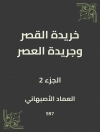The Eclogues of Virgil, composed during the tumultuous period of the late Roman Republic, epitomizes the pastoral genre, blending lyrical beauty with philosophical inquiry. Through ten poems, Virgil captures the idyllic life of shepherds, serving both as a homage to the simplicity of rural existence and a subtle critique of contemporary societal woes. His imaginative embrace of myth and nature reflects the poetic tradition of Theocritus while innovatively infusing Roman sensibilities, thus establishing a bridge between Greek and Latin literature that resonated throughout history. Publius Vergilius Maro, known as Virgil, was born into a farming family in 70 BCE and faced the political upheavals of his time, which significantly influenced his writing. The Eclogues emerged amidst the sociopolitical fragmentations of Italy, likely reflecting the author’s longing for a peaceful pastoral life, a stark contrast to his realities. His experiences and observations molded a rich tapestry of emotion, yearning, and philosophy that transcends mere description. Readers should approach The Eclogues as both an aesthetic pleasure and a poignant exploration of universal themes such as love, loss, and the connection between humanity and nature. As a foundational text of Western pastoral literature, it invites readers to meditate on their own lives and the beauty of simplicity. Virgil’s masterful use of poetic form elevates these observations, making this collection an essential read for anyone interested in literature’s profound ability to reflect humanity’s deepest emotions.
A propos de l’auteur
Publius Vergilius Maro (70-19 BCE), known as Virgil, was a preeminent Roman poet of the Augustan period, celebrated for his significant contribution to Latin literature. Born in the village of Andes, near Mantua, in Cisalpine Gaul, Virgil received his formal education in rhetoric, medicine, and astronomy, before devoting himself to the art of poetry. His pastoral collection, ‘The Eclogues of Virgil, ‘ is a masterful series of ten short pastoral poems that heralded a new era in Roman literature. Written between 42 and 37 BCE, ‘The Eclogues’ (also known as ‘Bucolics’) exhibit the influence of earlier Greek bucolic poets, such as Theocritus, adapting the idyllic as well as moral themes for a Roman audience (Virgil, ‘The Eclogues’). The work is recognized for its innovative use of hexameter verse and the pastoral mode to convey not only the beauty of rural life but also the socio-political anxieties of his time, particularly those arising from the aftermath of Julius Caesar’s death. Virgil’s poetic prowess is imbued with deep empathy for the human condition, and his influence on Western literature has been vast and enduring, with ‘The Eclogues’ forming an integral part of his legacy, one which shaped the pastoral genre for subsequent generations of writers.












